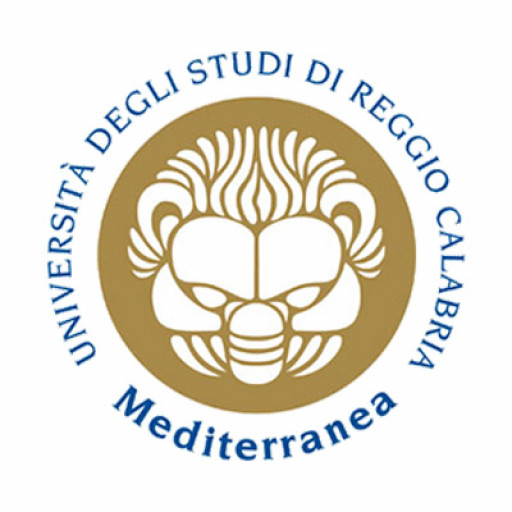Photos of university / #rmituniversity
Environmental Engineering at RMIT University offers a comprehensive and innovative educational experience designed to equip students with the knowledge and skills necessary to address complex environmental challenges. This program combines principles from engineering, science, and sustainability to prepare graduates for diverse careers in environmental protection, resource management, and sustainable development. Students will learn about water and wastewater treatment, air quality management, waste management, environmental systems, and renewable energy technologies. The curriculum emphasizes practical skills through laboratory work, industry projects, and internships, ensuring graduates are job-ready and capable of applying their expertise in real-world scenarios. RMIT’s focus on sustainability and environmental responsibility is integrated throughout the program, fostering a mindset geared towards innovative solutions and responsible engineering practices. The degree also emphasizes multidisciplinary collaboration, encouraging students to work with professionals from various fields to develop holistic approaches to environmental issues. Graduates of this program are well-prepared for careers in consulting firms, government agencies, industry, and research institutions, where they can contribute to environmental planning, regulation compliance, and the development of sustainable infrastructure. With access to state-of-the-art laboratories and industry partnerships, students gain valuable hands-on experience that enhances their learning and employability. This program is suitable for students passionate about making a positive impact on the environment and committed to lifelong learning in the rapidly evolving field of environmental engineering.
Engineers Australia accreditation will be sought for this particular program in light of accreditation time lines.
- A bachelor degree in engineering, engineering science, engineering or engineering technology (or equivalent qualification) with a significant study in at least one of the subsequent important engineering disciplines: civil, environmental, or engineering systems or equivalent
- Or a Master of Engineering by cooperation in one of these relevant fields listed previously. Applicants should have a Grade Point Average (GPA) equal to or higher than 2.5 out of 4.0
- Yet applicants who possess a GPA between 2.0 and 2.5 and a minimum of two decades of relevant work experience will also be entitled to consideration.
The financing of the Environmental Engineering program at the Royal Melbourne Institute of Technology (RMIT) typically encompasses a range of options to support both domestic and international students in funding their studies. For domestic students, government-supported schemes such as Austudy and Youth Allowance may provide financial assistance, depending on individual circumstances. Additionally, students may be eligible for HECS-HELP or FEE-HELP loans, which enable students to defer payments of their tuition fees until they are earning above a certain income threshold. These government loan programs are designed to make higher education more accessible by reducing the upfront financial burden.
International students enrolling in the Environmental Engineering program are usually responsible for paying tuition fees upfront or via payment plans offered by the university. RMIT offers various options for managing these costs, including scholarships, grants, and sponsorship opportunities. RMIT also provides an International Student Visa Support Program, which includes guidance on financial planning and the documentation required for student visa applications, ensuring that students have adequate financial backing before commencing their studies.
Apart from government assistance and loans, RMIT offers a range of scholarships specifically aimed at supporting students in engineering disciplines, including the Environmental Engineering program. These scholarships are often merit-based or need-based and can significantly reduce the financial burden. Students are encouraged to apply early, as scholarship opportunities are limited and highly competitive.
Students might also seek external sources of funding such as private scholarships, industry sponsorships, or financial aid from organizations related to environmental sciences and engineering sectors. Many students also consider part-time work during their studies to supplement their income, with RMIT’s Melbourne location providing numerous opportunities within the university's network and the surrounding community.
Overall, the financing landscape for the Environmental Engineering program at RMIT is designed to facilitate access to quality education through a combination of government programs, university scholarships, external funding opportunities, and flexible payment options. Prospective students are advised to consult the university’s official financial aid page and speak with admissions or student support services to receive personalized assistance and up-to-date information regarding available financial support schemes.
The Bachelor of Environmental Engineering at the Royal Melbourne Institute of Technology (RMIT) is a comprehensive program designed to equip students with the knowledge and skills necessary to address complex environmental challenges. This program emphasizes a multidisciplinary approach, integrating principles of engineering, science, and sustainability to develop innovative solutions for environmental problems. Students will gain a solid foundation in core engineering disciplines such as water and wastewater treatment, air pollution control, waste management, and sustainable infrastructure. The curriculum includes both theoretical coursework and practical experience through laboratories, industry projects, and internships, preparing graduates for real-world applications. RMIT’s state-of-the-art facilities and strong industry connections enhance learning outcomes, providing opportunities for students to engage with current environmental issues and technology. The program also focuses on the importance of ethical considerations and social responsibility in engineering practices, fostering a mindset geared toward sustainable development. Upon graduation, students will be well-equipped to work in various sectors including consulting firms, government agencies, construction companies, and environmental organizations. The degree often integrates modern topics such as renewable energy, climate change mitigation, and environmental policy, reflecting the evolving nature of the field. RMIT’s strategic location in Melbourne offers additional advantages, allowing students access to a vibrant city with numerous environmental projects and research initiatives. The program aims to develop professionals who can contribute to creating sustainable urban environments and improving the quality of life through environmentally responsible engineering solutions.










